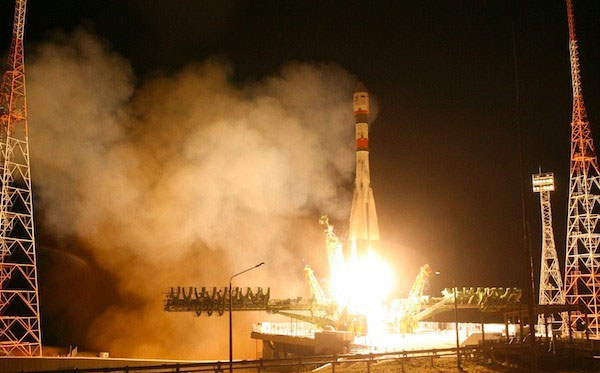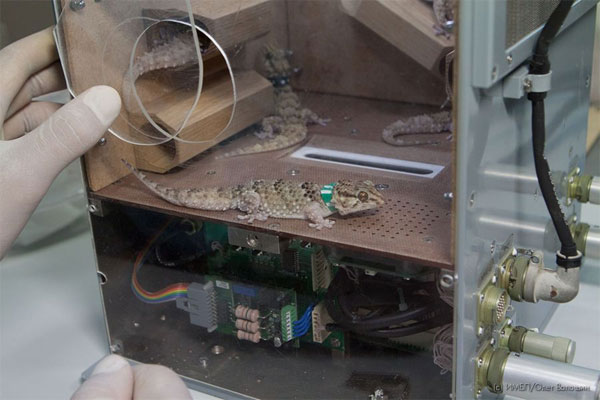Russia put geckos on the universe
Geckos, tree seeds and some samples of materials are brought to space in a Russian biological and biological research project.
The Soyuz 2-1a rocket launches the Foton M4 spacecraft launched from Baikonur space airport in Kazakhstan at 20:50 (GMT) on July 18. In this research journey, Foton M4 carries Russian research satellites, geckos, plant varieties and a number of material samples.

The Foton M4 spacecraft boosters were launched from Baikonur space airport.(Photo: Roscosmos)
The Foton M4 spacecraft will stay in orbit for 60 days, conducting 22 experiments to study the effects of harsh environments in space on organisms and production materials .
Experts will observe the effect of a zero gravity environment on adult geckos, including mating behavior and embryonic development. According to Space, dried seeds and silkworm eggs will be studied to determine their reaction to cosmic radiation.

Geckos are kept in separate compartments on Foton M4 before being put into space.(Photo: Roscosmos)
Collaborative experiments between Russia and Germany will focus on semiconductor crystal research in a zero gravity environment. Experts hope that research results will pave the way for solar cell technology, light-emitting diodes, transistors and other applications in the electrical industry.
Foton M4's mission with many improvements and upgrades in solar panels and push modules, helps extend flight time and height adjustment.
- Russia is about to bring geckos to the universe
- Flying and stealth geckos of Vietnam
- 6 interesting possibilities of geckos
- Discover the only new gecko species in the world
- Beautiful photo: Gecko disco dance
- Gecko species have the ability to
- Detecting geckos climbing faster in wet environments
- Decode the anti-slip mechanism of gecko feet
- Research reproduces the process of forming life in the universe
- Russia conquered the Moon in 2030
- Decode the ability to climb walls of geckos
- Russia raises American astronauts round-trip tickets
 Van Allen's belt and evidence that the Apollo 11 mission to the Moon was myth
Van Allen's belt and evidence that the Apollo 11 mission to the Moon was myth The levels of civilization in the universe (Kardashev scale)
The levels of civilization in the universe (Kardashev scale) Today Mars, the sun and the Earth are aligned
Today Mars, the sun and the Earth are aligned The Amazon owner announced a secret plan to build a space base for thousands of people
The Amazon owner announced a secret plan to build a space base for thousands of people